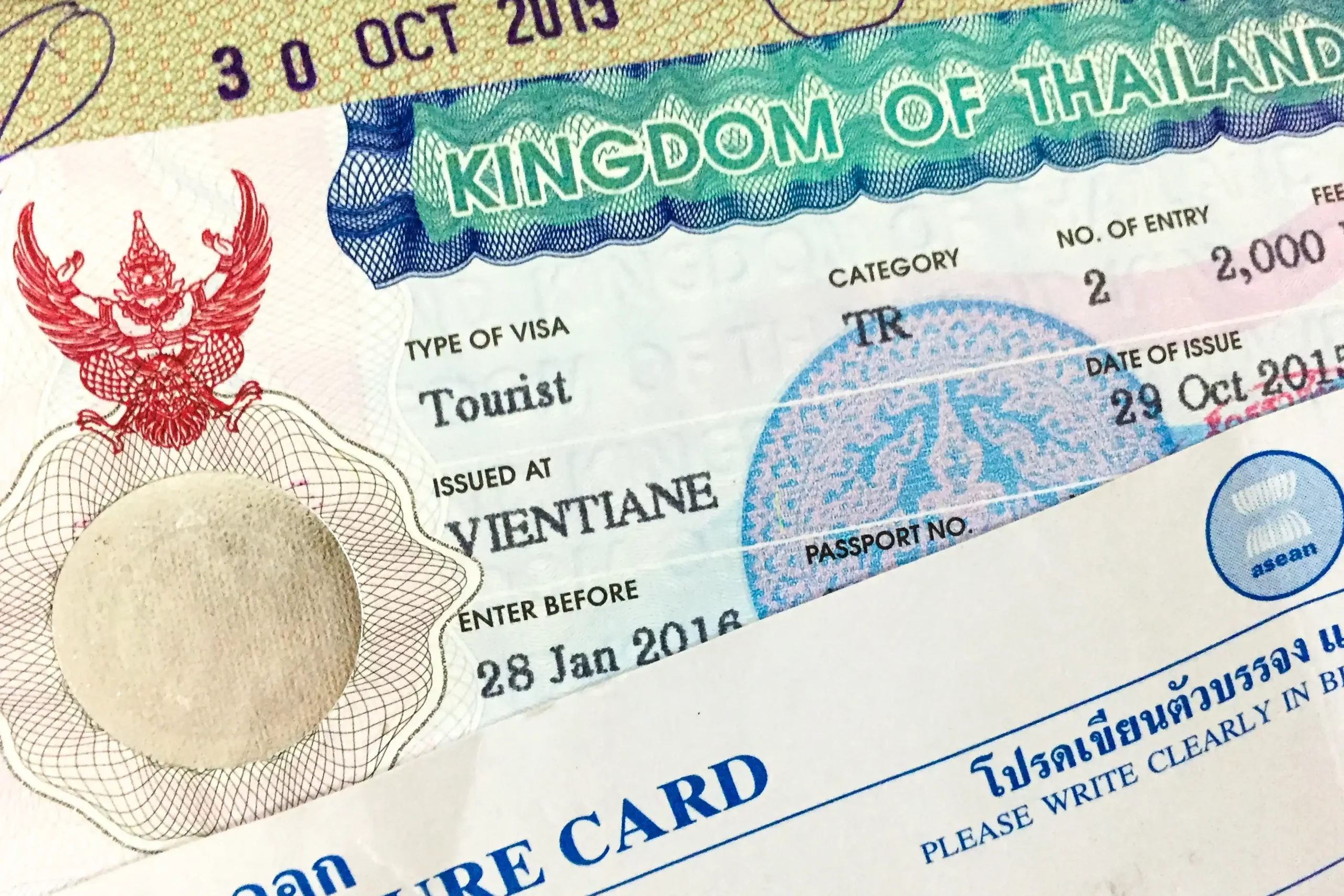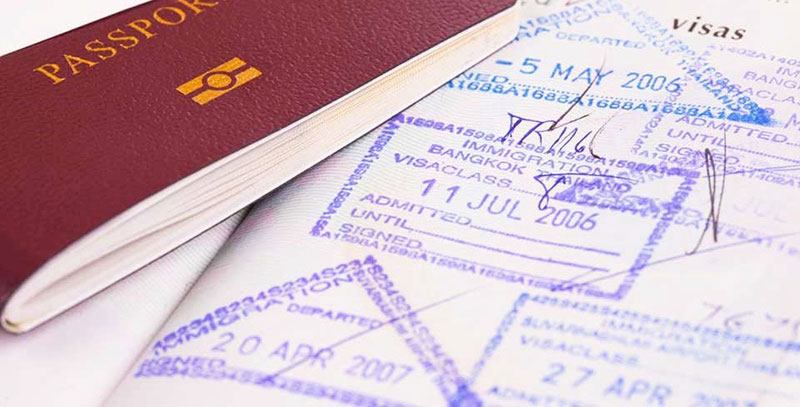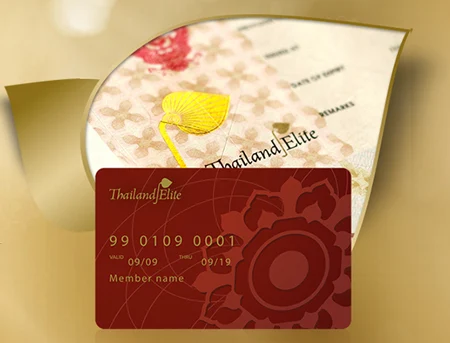Business Visa in Thailand

Business Visa in Thailand. Thailand’s Non-Immigrant “B” Visa, commonly known as the Business Visa, is one of the most important categories for foreigners intending to work, invest, or conduct business activities in the country. Unlike a tourist visa, it serves as the legal foundation for applying for a work permit and long-term business stay. However, the process involves several steps — from embassy applications to in-country extensions — and a precise understanding of Thai immigration and labor laws.
This comprehensive guide explains the types of Business Visas, eligibility, documentary requirements, extension procedures, work permit connections, and practical compliance duties that foreign professionals and employers must know.
1. Purpose and Legal Basis
The Business Visa is issued under Thailand’s Immigration Act B.E. 2522 (1979) and implemented through the Royal Thai Embassies and Consulates worldwide. It is designed for foreigners who:
-
Intend to work or conduct business in Thailand;
-
Wish to establish or manage a Thai company;
-
Are employed by a Thai firm or a foreign company with a branch in Thailand;
-
Need to attend business meetings, seminars, or negotiations.
Crucially, a Business Visa does not itself permit employment — it only provides the immigration status that allows a foreigner to apply for a work permit after entering Thailand.
2. Categories of the Business Visa
The Non-Immigrant “B” Visa is divided into two main types:
(a) Single-Entry Business Visa
-
Valid for 90 days from the date of entry.
-
Intended for foreigners who need to enter Thailand to work temporarily or complete short-term business tasks (e.g., project setup, negotiations).
-
Must be used within 90 days of issuance.
(b) Multiple-Entry Business Visa
-
Valid for 1 year, allowing multiple entries of up to 90 days each.
-
Suitable for businesspersons or company directors who frequently travel in and out of Thailand.
-
Requires maintaining financial stability (bank statements and corporate sponsorship are often reviewed).
Some Thai embassies also allow in-country visa extensions to convert a single-entry Non-B visa into a long-term, renewable one-year visa once a work permit is obtained.
3. Key Eligibility Requirements
To qualify for a Business Visa, an applicant must demonstrate:
-
Legitimate business purpose (employment, company investment, or management duties).
-
Sponsorship by a Thai-registered company — either as an employer or as a partner organization.
-
Company compliance — the sponsoring company must have registered capital of at least 2 million THB for each foreign employee, pay proper taxes, and maintain at least four Thai employees per foreign worker (a Ministry of Labor requirement).
-
Clean criminal record and no overstay history.
For foreign investors, proof of shareholding, corporate registration, or BOI (Board of Investment) promotion approval may also be necessary.
4. Document Requirements (Embassy Level)
Each Royal Thai Embassy may have slightly different procedures, but generally, applicants must prepare:
From the Applicant:
-
Valid passport (at least 6 months validity);
-
Completed visa application form;
-
Recent passport-size photo;
-
Proof of adequate funds (minimum 20,000 THB per person or 40,000 THB per family);
-
Employment contract or letter of appointment specifying position, salary, and duration;
-
Academic or professional credentials (if required for the occupation).
From the Thai Company:
-
Invitation letter stating the purpose of visit and confirming sponsorship;
-
Company registration documents (DBD Certificate, shareholder list, VAT registration);
-
Corporate income tax returns (PND 50) and latest financial statements;
-
Business license (if applicable);
-
Letter of guarantee for the applicant’s character and compliance.
All Thai-language documents must be stamped with the company seal and signed by the managing director.
5. The Application Process
Step 1: Submission at Thai Embassy or Consulate
Applicants must apply at a Thai diplomatic post outside Thailand or via the Thai e-Visa portal. Processing time varies from 3 to 10 business days depending on the location.
Step 2: Entering Thailand
Upon approval, the visa holder may enter Thailand and receive an initial 90-day stay. It’s vital to note the permitted period of stay stamped in the passport upon arrival.
Step 3: Applying for a Work Permit
Once in Thailand, the foreigner’s employer must apply for a work permit at the Department of Employment (Ministry of Labor). The visa must remain valid during the work permit process.
Step 4: Visa Extension (1-Year Stay)
After the work permit is issued, the foreigner can apply for a 1-year visa extension at the Immigration Bureau. The extension is renewable annually as long as employment or business activity continues.
6. Business Visa Under BOI Promotion
Foreigners investing in projects promoted by the Thailand Board of Investment (BOI) enjoy significant privileges. The BOI may issue an endorsement that allows the applicant to obtain:
-
A visa-on-arrival through the One Stop Service Center (OSSC) in Bangkok;
-
Expedited work permit issuance;
-
Multi-year visa extensions aligned with BOI project timelines.
BOI-endorsed companies bypass several standard requirements (e.g., Thai employee ratios or capital minimums), making them ideal for large-scale investors and high-skill expatriates.
7. Compliance and Reporting Duties
Business visa holders must comply with Thailand’s immigration obligations:
-
90-Day Reporting: Every 90 days, the foreigner must report their residential address to the Immigration Bureau (online, in-person, or by mail).
-
Re-Entry Permit: If leaving Thailand before the visa’s expiry, a re-entry permit is required to keep the visa valid.
-
Work-Scope Limitation: The visa and work permit define permissible employment. Engaging in unauthorized work is a criminal offense under Thai labor law.
-
Tax Registration: Once employed, the foreigner must obtain a personal tax identification number and file annual tax returns.
Failure to comply can lead to visa cancellation, fines, or deportation.
8. Common Pitfalls and Practical Tips
-
Wrong visa type — A tourist visa cannot be converted easily into a Business Visa without leaving Thailand, except under limited Ministry of Interior discretion.
-
Incomplete company documents — Embassies frequently reject applications where company financials or DBD certificates are missing.
-
Expired passport or visa — Both the passport and visa validity must exceed the work permit duration.
-
Misunderstanding work permit linkage — Even with a valid Business Visa, work without a permit is illegal.
-
Neglecting renewals — Missing 90-day reports or renewal deadlines results in penalties or bans.
Applicants are advised to work with an immigration lawyer or licensed visa agent familiar with the specific embassy’s requirements to ensure smooth processing.
9. Timelines and Processing Overview
| Stage | Responsible Agency | Typical Duration |
|---|---|---|
| Embassy application | Thai Embassy / e-Visa portal | 3–10 working days |
| Entry & 90-day permission | Immigration Bureau (airport) | Upon entry |
| Work permit issuance | Department of Employment | 7–15 working days |
| Visa extension (1 year) | Immigration Bureau | 1–2 weeks |
| 90-day address reporting | Immigration Bureau | Every 90 days |
10. Renewals, Dependents, and Change of Employer
-
Renewals: One-year extensions can be renewed indefinitely as long as employment continues and company compliance is maintained.
-
Dependents: Spouses and children may apply for Non-Immigrant “O” visas and reside in Thailand as dependents of the Business Visa holder.
-
Change of Employer: If employment changes, the foreigner must cancel the previous work permit and reapply under the new employer — failure to do so invalidates the visa.
Conclusion
A Business Visa in Thailand is more than a travel document — it is the legal foundation for professional activity, investment, and corporate growth. To succeed, both foreign applicants and Thai companies must meticulously align immigration, labor, and tax compliance.
Whether through a standard Non-Immigrant “B” route or BOI-promoted channels, the keys to a smooth process are accurate documentation, timely registration, and strict adherence to renewal obligations. For long-term investors and professionals, maintaining lawful status under a Business Visa is not only a regulatory requirement but a sign of commitment to responsible participation in Thailand’s growing economy.








